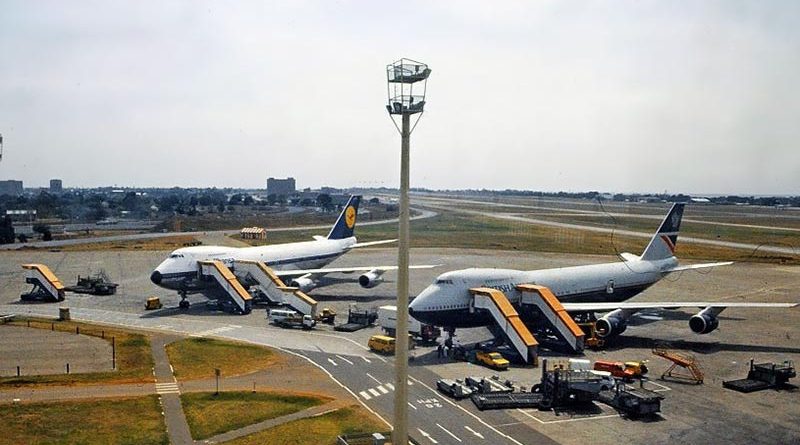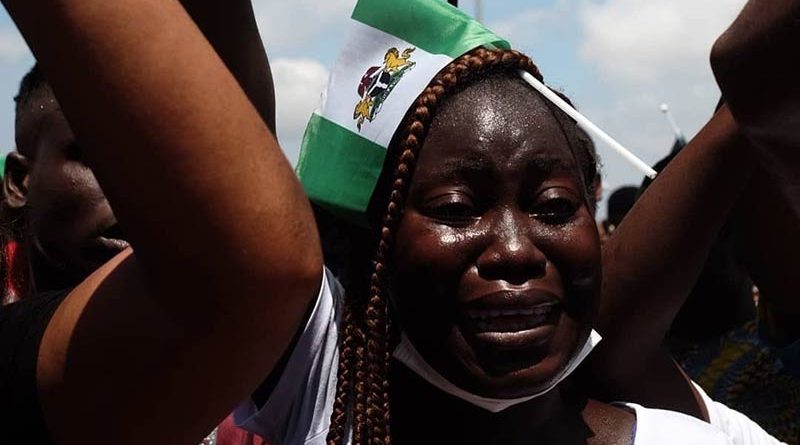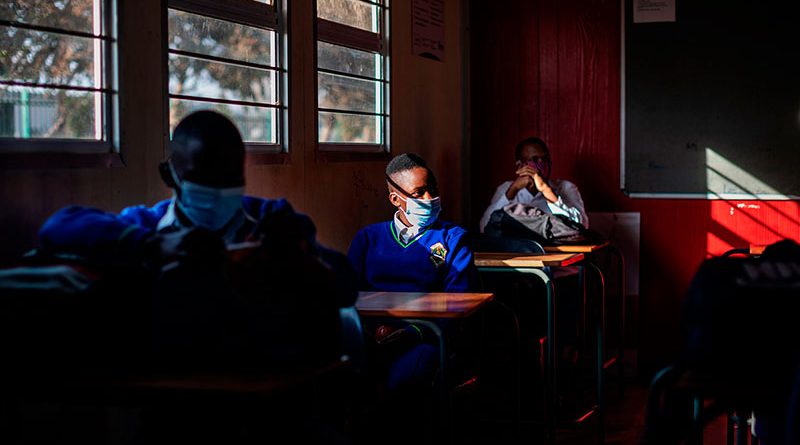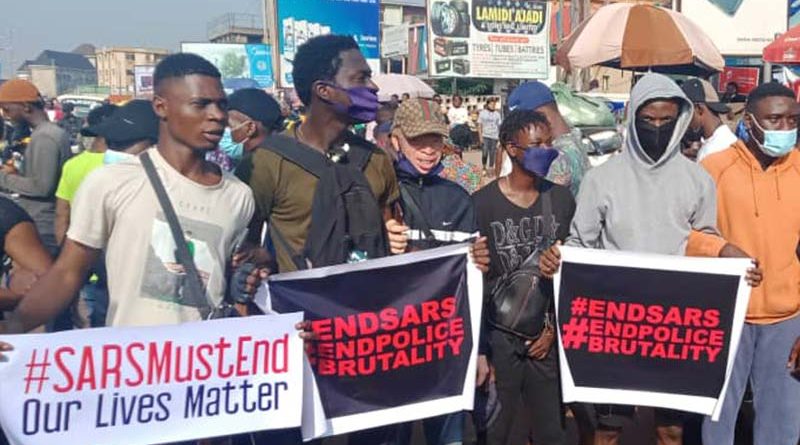SOUTH Africa has reduced the number of countries on its high-risk COVID-19 list by more than half to 22 from 60, the government has announced, although Germany was among the notable additions to the register.
The only people from high-risk countries allowed entry are business travellers, holders of critical skills visas, investors and people on international missions in sports, arts, culture and science, or people visiting for a minimum of three months.
South Africa opened its borders to international travellers at the beginning of October after a six-month ban that hit tourism and the broader economy hard. The initial list included a number of key sources of tourists, drawing criticism for experts.
The government has said it would revise the list of banned countries every two weeks. The latest list still includes the United States, the United Kingdom, France, Belgium and Spain among European countries, as well as Russia, Brazil and India.
The government did not explain the reasons behind the addition of Germany. The number of confirmed coronavirus cases in Germany increased to 366,299 according to data on Monday. Although less hard-hit than much of Europe, Germany is now experiencing a second wave of infection.
Statistics South Africa data for July published last month showed a 94.4% year-on-year drop in foreign arrivals. There were 484 arrivals from overseas, with European travellers accounting for more than half of that number.
In a statement, the Department of Home Affairs said it would allow visitors who intended to stay in the country for three months or more, subject to COVID-19 protocols which include a negative coronavirus test not older than 72 hours. – Thomson Reuters Foundation.
Source: The African Mirror
SOLDIERS opened fire on Nigerians protesting against police brutality in the Lekki district of the commercial capital Lagos on Tuesday, and at least two people were shot, four witnesses told Reuters.
Thousands of Nigerians have demonstrated nationwide every day for nearly two weeks against a police unit, the Special Anti-Robbery Squad (SARS), that rights groups had for years accused of extortion, harassment, torture and murders. The unit was disbanded on October 11 but the protests have persisted with demonstrators calling for a raft of law enforcement reforms.
“They started firing ammunition toward the crowd. They were firing into the crowd,” said Alfred Ononugbo, 55, a security officer after the soldiers opened fire. “I saw the bullet hit one or two persons,” he said.
The condition of those two people was not immediately known. Amnesty International has said at least 15 people had been killed since the protests began.
In a Twitter post, the Nigerian Army said no soldiers were at the scene of the shooting on Tuesday night in Lekki, an upmarket district where the toll gate has been the site of daily protests in Lagos, Africa’s biggest city.
Lagos State Governor Babajide Sanwo-Olu tweeted pictures of him visiting people in the hospital who were victims of what he referred to as the “unfortunate shooting incident at Lekki”.
He said 25 people were being treated for mild to moderate injuries, two were receiving intensive care and three had been discharged.
“As the Governor of our state, I recognise the buck stops at my table and I will work with the FG (federal government) to get to the root of this unfortunate incident and stabilise all security operations to protect the lives of our residents,” said Sanwo-Olu, adding that he would give a state broadcast on Wednesday morning.
The Lagos state government earlier said it would open an investigation into the shooting, which witnesses said began at about 7 p.m. (1800 GMT).
A Nigerian army spokesman did not immediately respond to requests for comment.
Inyene Akpan, 26, a photographer, said more than 20 soldiers arrived at the toll gate in Lekki and opened fire. He said he saw two people being shot.
Akinbosola Ogunsanya, a third witness, said he saw around 10 people being shot. Ogunsanya, who said lights went out shortly before the soldiers arrived, also said he saw soldiers remove bodies.
Another witness, Chika Dibia, said soldiers hemmed in people as they shot at them.
Video verified by Reuters showed men walking slowly information toward demonstrators, followed by trucks with flashing lights, and the sound of gunfire popping. Another video showed the toll gate itself, with a protester waving a Nigerian flag, as people ran amid the sounds of gunfire.
A Reuters witness heard sirens and gunfire.
DEFENCE MEETING
President Muhammadu Buhari on Tuesday held scheduled talks with the defence minister and the chief of defence staff around 6:15 p.m. (17:15 GMT) to discuss national security, two presidency officials told Reuters, speaking on condition of anonymity.
A spokesman for the president did not immediately respond to requests for comment.
The Nigerian army was due to begin a two-month national exercise on Tuesday. When the move was announced on Saturday, it denied the move was part of a security response to the demonstrations. Days earlier, the military said it was prepared to help maintain law and order.
The weeks-long protests were sparked by a video that began circulating in early October purportedly showing SARS officers shooting a man in southern Delta state. Police denied the shooting.
Authorities on Tuesday imposed a round-the-clock curfew on Lagos as the state governor said protests had turned violent.
It is one of five of Nigeria’s 36 states to have announced such measures in the last two days. The national police chief also ordered the immediate deployment of anti-riot forces nationwide following increased attacks on police facilities, a police spokesman said. – Thomson Reuters Foundation.
Source: The African Mirror
ETHIOPIA has set up a network of committees to identify children forced into work or marriage during the coronavirus pandemic and to ensure schools are safe to re-open this week although campaigners fear it will be hard to reverse the damage done.
Yohannes Wogasso, school improvement program director at the Ministry of Education, said authorities realised the closure of schools in March to stop the spread of COVID-19 had led to a rise in child marriage, child labour, and gender-based violence.
But he said reopening schools from October 19 should go some way to reversing the negative impacts, with child rights’ campaigners highlighting the crucial role of education in the fight against child labor and child marriage.
“Because of the economic challenges, many parents of low socio-economic status were obliged to use child labor and this might be exacerbated unless we reopen our schools,” Yohannes told the Thomson Reuters Foundation.
He said the government had established ad-hoc committees from the federal level to the smallest administrative unit to identify marginalized and hard-to-reach children, including those already in child marriage and forced labor.
The committees would also ensure that schools could operate safely despite many lacking handwashing facilities and having limited resources to make changes.
About 17,000 schools, mainly in rural areas, have fulfilled the requirements and will reopen on Monday, said Yohannes who hoped all schools across Ethiopia would follow in coming months.
Despite rapid growth in the past decade, inequality is stark in Ethiopia where a growing number of children have been driven from their homes – by poverty or neglect – and ended up begging or selling wares to survive life on the streets, charities said.
About 16 million children aged between 5 and 17 are engaged in child labour across Ethiopia which has a population of about 110 million, including about 60 million people aged under 18, according to a national survey published in 2018.
U.N. children’s agency UNICEF has said about 40% of girls are married before the age of 18, with 15 million child brides in Ethiopia, despite progress by the government to tackle early marriage in recent years.
Child migration specialist Girmachew Adugna from the Friedrich Ebert Stiftung’s Flight and Migration Competence Center in Addis Ababa said attending school can help children escape child marriage.
But he said the pandemic had disrupted child-friendly reporting mechanisms as children could not report abuse to teachers and community health workers, who have played a key role supporting children but now focus on the COVID-19 response.
Despite schools reopening, dropouts are likely to be substantial as impoverished families may keep their children working, according to Belay Hagos, director of the Institute of Educational Research at Addis Ababa University.
Students from low-income families, girls, rural students and low-performing students were more at risk of remaining out of school, according to a survey led by the team of the Research on Improving Systems of Education (RISE) programme in Ethiopia.
“This (school reopening) might slow the negative effects of the pandemic on children but the effects will surely continue as the pandemic has affected the economy of households,” said Girmachew. – Thomson Reuters Foundation.
Source: The African Mirror
THE International Committee of the Red Cross (ICRC) will help train Nigeria’s new tactical force as thousands nationwide continue to march against police brutality and in demand of further reforms, Nigeria’s police inspector general has said.
Protests began roughly two weeks ago demanding the dissolution of the Special Anti-Robbery Squad (SARS), which was accused by Nigerians and groups such as Amnesty International of extortion, brutality and torture.
The police force has repeatedly denied the accusations against SARS, though it said earlier this month that “unruly and unprofessional” officers had been arrested and were facing disciplinary actions
The new unit, the Special Weapons and Tactics (SWAT) team, was created to “fill the gaps” left when police disbanded SARS on October 11.
SWAT training will begin on Monday in partnership with the ICRC and “other development partners”, Mohammed Adamu, inspector general of police, said in a statement. Former SARS officers are not eligible to join SWAT, the statement said.
The ICRC did not immediately respond to a request for comment. Police said the ICRC would join training on humanitarian laws, police conduct in conflict, and human rights in the use of force, arrest and detention.
Senate President Ahmad Lawan, after meeting with President Muhammadu Buhari on Sunday, called on protesters to stand down in light of the steps leaders had taken.
But protesters are demanding further protections against the police, including independent oversight and psychological evaluation of officers.
Hundreds joined a prayer march on Saturday in Port Harcourt, and peaceful marches and demonstrations continued in Lagos, Abuja, Warri, Enugu and Makurdi. Supporters launched an online radio station to bolster the movement.
Most demonstrations are now peaceful after authorities barred police from using force against protesters.
But at least two were killed around demonstrations on Saturday in Osogbo in southwestern Osun state, a spokesman for Governor Gboyega Oyetola told Reuters. The spokesman said an angry mob had attacked Oyetola’s convoy, and that one person was killed before he arrived and the second after he had left.
Source: The African Mirror




